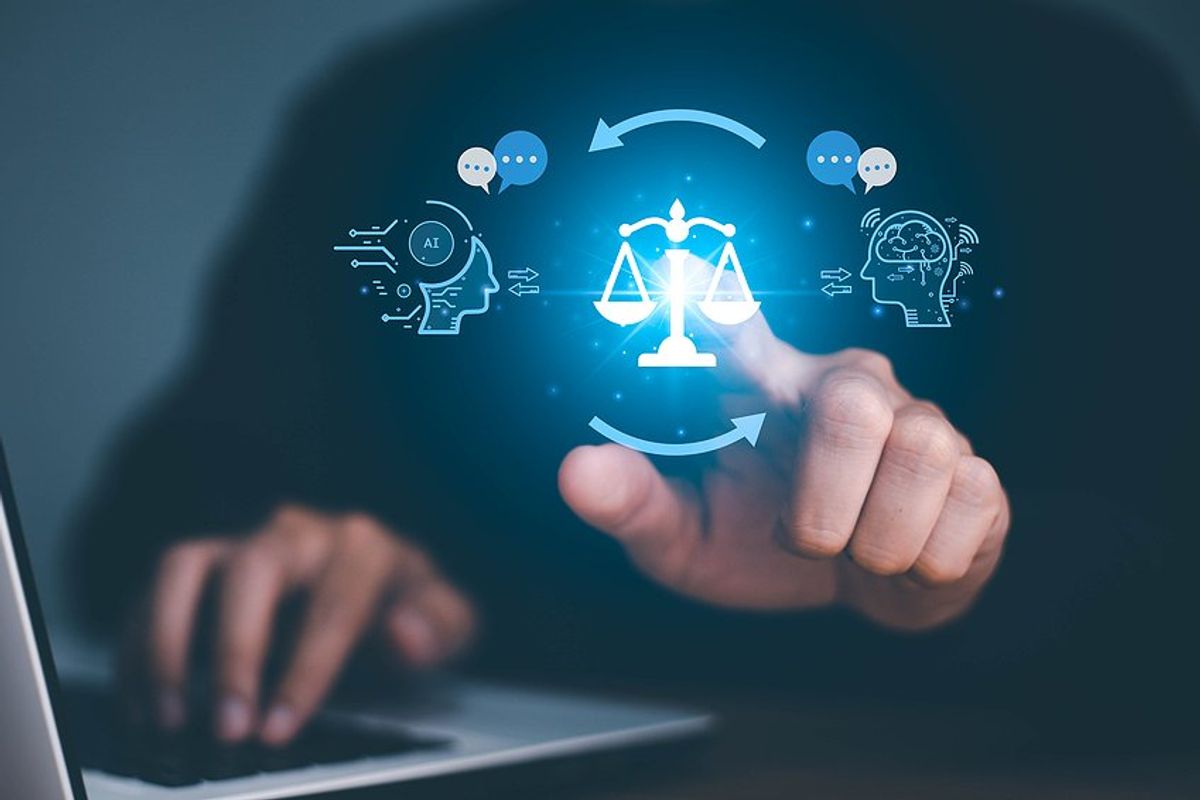
So many things changed in 2001. Certainly, there were major political and security changes that came because of the terrorist attack on 9/11. Profound and long-lasting changes.
So, too, there were massive changes in how we conducted discovery in litigation and investigations. Specifically, discovery started to have an “e” in front of it.
Adding the “e” to Discovery
I remember my first eDiscovery project in 2001 where discussions were held over how to collect electronic information from a computer and whether and how we should print that information to make it ‘usable.’
Slowly, everyone in litigation started to grapple with the “e” but were doing so inconsistently from law firm to law firm. Finally, in December 2006, the federal rules were amended to make their first attempt at grappling with the “e” by defining and standardizing various processes. What was readily accessible? What was proportional? How far back would you have to look and how broad would the searches be?
We had asked similar questions before but more as it related to file cabinets and filing rooms in storage facilities. Now we were grappling with backup tapes and servers and floppy disks.
The Introduction of Machine Learning
I have long said that you deal with technology problems by using technology. When the volume of data became humanly unmanageable, we started to see the litigation world go through new changes as it relates to the use of technology. Machine learning was introduced on various review platforms. Humans made decisions that computers would then enhance and find similar documents.
The acceptance of such machine learning has not been universal. In the age of ever-changing technology, the legal landscape never seems to keep up with the business realities. Mobile devices, remote work, and all its implications are dealt with daily in the business world and in litigation. However, lawyers both by training and experience do not always have the knowledge base or the skill sets to answer the questions that inevitably arise. We need to close that knowledge gap.
AI Is Taking Over
Now, in 2024 we start to grapple not with the “e” in discovery but with artificial intelligence (AI) and its impact on the eDiscovery process. We will look at four areas that will inevitably be impacted by the use of AI and other machine-learning tools. First, we will look at the impact on the collection of data. Next, we will look at the impact on searching that data, particularly as it relates to protected content. Third, we will look at the growing impact on the review process. And finally, the impact of AI on the analysis of the data that we need for deposition or trial (i.e., the use of the data).
Collecting Data
No longer can you collect everything. There’s just too much. Data may be cheap to store, but it’s not cheap to collect, search, and review. We need to find a better way so the cost doesn’t overwhelm the value of the case.
Also, the sources of data are increasing in number. Beyond shared drives and hard drives. We now have multiple social media platforms and websites (mostly containing video instead of just text data.) This makes the use of AI critical to collect only the needed data. And to improve the process from one litigation to the next. AI can collect, preserve, and prepare the data for searching.
Searching
AI has an incredible searching capability. Not just using antiquated keywords which have been used for more than a decade, but nuanced searching particularly for protected content. Things like attorney-client privilege, work product, or, in regulated industries, additional privileges related to banking and suspicious activity reports. Or, in the healthcare industry, anything related to protected health information, personal identifying information, HIPAA, or any of a number of other privileges that might apply to your particular industry.
We are fast approaching the ability to type or speak out a search using AI that searches, in mere seconds, across the universe of data types that you’ve collected. Then, changing or editing that search and re-doing it equally as fast. Each time, you get a better sense of the data available rather than searching for keywords or having attorneys review each set to see what’s in the data.
Review Is Changing
When I started as a baby lawyer looking at documents, we had pieces of paper and we had a file room where that paper was stored. We had individuals looking at each page wondering what we might discover as we went through someone’s file. Gradually, we started to use the computer for tagging and consistency between different productions in different locales.
The industry finally moved on to machine learning where individual attorneys could make decisions that the computer would then try to replicate and enhance rationally to include similar documents. (Not unlike how streaming services try to find you movies similar to the ones that you have liked or watched before.)
The growth of AI in the review space is not over. Instead of just assisting the lawyer on that first-level review to find responsive, confidential, or privileged materials, I see AI quickly making that step disappear completely.
Instead, a higher-level, experienced review attorney who specializes in quality control review or in that specific industry will focus on training the AI and then sifting through what the technology has identified as responsive, confidential, or privileged. That quality step is necessary but it will also likely be limited as AI becomes more sophisticated and nuanced and lawyers become more comfortable with its outputs.
Analysis
This would include documents you are producing for the other side as well as documents you are receiving from the other side.
AI can go through an enormous amount of information in a short amount of time. It can categorize it and put documents into subject matter buckets considerably faster than a human can. It can also spit out its analysis of what it has categorized.
AI no doubt will be increasingly used for this step possibly removing the need for the young associate at the outside counsel and, much like in the review world where only quality reviewers are remaining, only those dealing with the actual litigation will need to look at those documents.
Embrace It
Technology has impacted the legal field for at least the last 20 years. The speed of its impact is only going to increase. Both in terms of jobs available and the in-depth analysis that is available now, that would have taken a human many, many hours to absorb and understand.
I am of the persuasion that we should not fight technology advances. While the ATM did cause a shift in the banking employment industry, I much prefer going to an ATM to get cash than standing in line in front of a teller. Restaurants, too, were impacted by the pandemic and the push towards drive-thru and delivery versus customers dining inside. They had to adjust their business model. So, too, will lawyers.
We need to embrace it, we need to understand it, and we need to learn to use it rather than creating roadblocks to try to preserve what has gone before.
- How AI & ChatGPT Will Impact The Job Search Process ›
- The Power Of Genuine Connection: Why AI Won't Secure Your Dream Job ›
- Unleashing Individuality: Empowering People Through AI ›
- Actionable Reporting (And AI) In A Data-Driven World ›
- Executive Spotlight: How Artificial Intelligence (AI) Will Transform Management ›
- Lawyer Lingo – Common Law Jargon Deciphered ›
- 5 Possible Examples Of AI Usage With Salesforce - Work It Daily ›
- Unleashing The Potential Of STLMs For Business Efficiency - Work It Daily ›

 Bigstock
Bigstock Bigstock
Bigstock Bigstock
Bigstock


